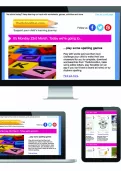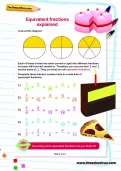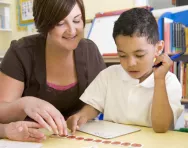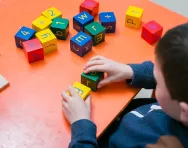Important update from TheSchoolRun
For the past 13 years, TheSchoolRun has been run by a small team of mums working from home, dedicated to providing quality educational resources to primary school parents. Unfortunately, rising supplier costs and falling revenue have made it impossible for us to continue operating, and we’ve had to make the difficult decision to close. The good news: We’ve arranged for another educational provider to take over many of our resources. These will be hosted on a new portal, where the content will be updated and expanded to support your child’s learning.
What this means for subscribers:
- Your subscription is still active, and for now, you can keep using the website as normal — just log in with your usual details to access all our articles and resources*.
- In a few months, all resources will move to the new portal. You’ll continue to have access there until your subscription ends. We’ll send you full details nearer the time.
- As a thank you for your support, we’ll also be sending you 16 primary school eBooks (worth £108.84) to download and keep.
A few changes to be aware of:
- The Learning Journey weekly email has ended, but your child’s plan will still be updated on your dashboard each Monday. Just log in to see the recommended worksheets.
- The 11+ weekly emails have now ended. We sent you all the remaining emails in the series at the end of March — please check your inbox (and spam folder) if you haven’t seen them. You can also follow the full programme here: 11+ Learning Journey.
If you have any questions, please contact us at [email protected]. Thank you for being part of our journey it’s been a privilege to support your family’s learning.
*If you need to reset your password, it will still work as usual. Please check your spam folder if the reset email doesn’t appear in your inbox.
Living with ADHD

What are the symptoms of ADHD?
ADHD has three main features according to Professor Paul Cooper from Leicester University. “The first thing is impulsivity – the inability to think things through, then inattention – difficulty sticking with the task at hand, and hyperactivity – an impaired ability to inhibit and regulate physical ability,” he explains. “But not every child has all three. Girls tend to be inattentive, vague and day-dreamers, boys are often hyperactive, loud and excitable.”
Professor Peter Hill, a psychiatrist who specialises in ADHD, warns that the condition can be easily missed in girls. “Three or four times as many boys are diagnosed with ADHD as girls because hyperactivity is easier to spot,” he says.
Of course not every child who daydreams, has endless energy, or flits from one thing to another has ADHD. But if your child has more than their fair share of these difficulties, make an appointment with your GP. If they share your concerns they can refer your child to a specialist clinic for a thorough assessment.


Boost your child's maths & English skills!
- Follow a weekly programme
- Maths & English resources
- Keeps your child's learning on track
ADHD in children
Amanda Wills used to despair when she her son Matthew was being disruptive again. “In nursery, they used to say he was aggressive and uncontrollable,” says Amanda, “and at home I had to supervise him constantly because he didn't see danger – he would dart into the road or climb to the top of the climbing frame and let go to wave.”
“I was exhausted. When he went to school I'd dread the daily call to tell me that he'd been disruptive or disobedient again. Finally, a teacher completely lost her temper with him because he wouldn't keep still in PE. It was then the health visitor suggested he may have ADHD.”
How can parents help their child
“It's important that parents don't blame themselves,” says Dr Pamela Maras, a researcher from the University of Greenwich. “It's not their fault their child has ADHD, but they can help their child learn social rules by being consistent.”
All children need clear instructions, patiently given, but ADHD children need them time and time again.
Medication? The Ritalin debate
Experts agree that learning the rules of good behaviour is often easier for a child with ADHD who has a little medical help. No one likes giving drugs to children but many parents opt to because they need to survive. They're not being selfish, just realistic. “I knew the Ritalin was working for Matthew the first day he took it,” says Amanda. “For the first day ever I didn't get a call from the school!”
“The average length of time that children take medication is two years,” says Professor Hill. So it's not forever.
Other families swear by alternative remedies. Diets low in additives like colourings and flavourings work for some, while fish-oil supplements have recently hit the headlines with claims of great results.
Approaching ADHD positively
Whatever you choose to do, the important thing is to do something. “Children with ADHD are often as unhappy as their parents because they have to live their lives to a soundtrack of nagging,” says Professor Hill. The constant criticism can cause low self-esteem, frustration, anger, and finally withdrawal. Positive action will undoubtedly improve the situation.








